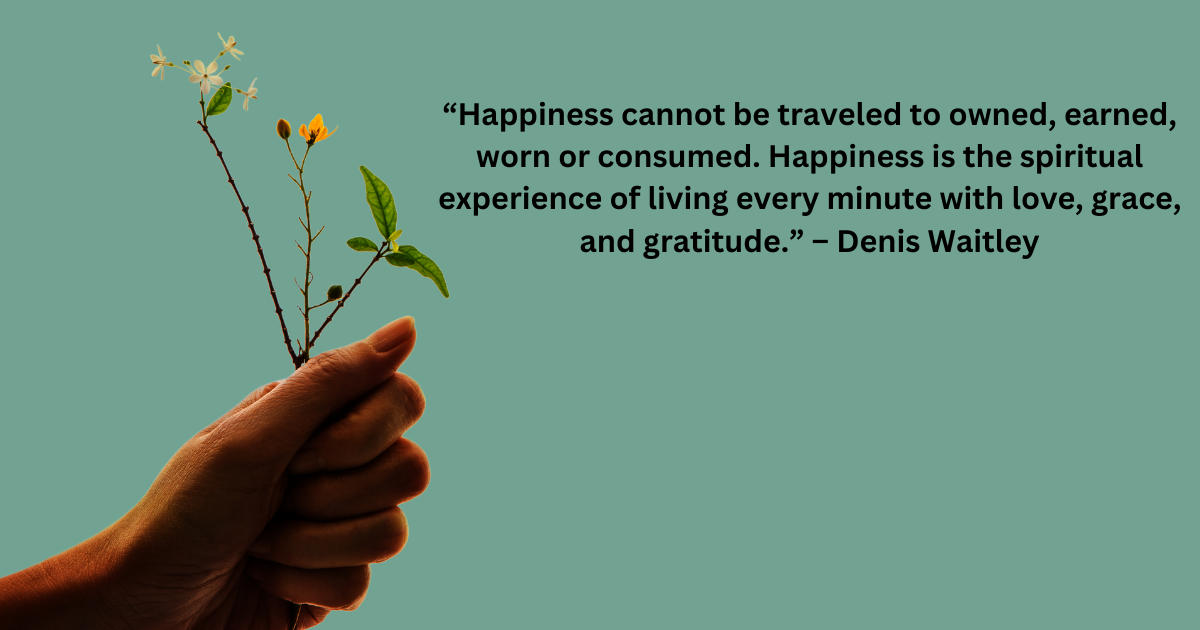Introduction
In a fast-paced world filled with constant distractions and demands, finding contentment can seem like an elusive goal. However, one powerful tool that can significantly transform your mindset and life is gratitude. Practicing gratitude daily can shift your focus from what’s lacking to what you already have, leading to a more fulfilling and peaceful life. But Cultivate Gratitude is more than just saying “thank you.” It’s a mindful practice that changes the way you see and experience the world.
In this article, we’ll explore how to cultivate gratitude as a daily practice and unlock its many benefits for a more rewarding and satisfying life.
Understanding Gratitude
What is Gratitude?
At its essence, gratitude involves acknowledging and valuing the positive aspects of your life. It’s more than just saying “thank you” when something nice happens; it’s an attitude of acknowledging and valuing both the big and small blessings that surround you every day.

The Difference Between Gratitude and Positivity
Gratitude is often confused with general positivity, but they are distinct concepts. While positivity is about maintaining an optimistic outlook, gratitude is about acknowledging specific aspects of life you’re thankful for. It’s rooted in mindfulness and awareness, allowing you to appreciate what’s present in the moment.
How Gratitude Affects Your Mindset and Outlook on Life
When you Cultivate Gratitude consistently, it rewires your brain to focus on abundance rather than scarcity. Instead of dwelling on what you lack, you begin to notice and appreciate what you have, leading to a more positive outlook on life. This shift in mindset can improve emotional well-being, reduce stress, and enhance overall happiness.
The Benefits of Cultivate Gratitude
Enhancing Mental Health
Reducing Stress and Anxiety
Gratitude has been shown to lower stress levels by helping you shift focus away from worries and fears. By regularly Cultivate Gratitude, you train your brain to focus on the positive, which naturally reduces feelings of anxiety.

Boosting Emotional Resilience
Cultivate Gratitude also strengthens your ability to bounce back from challenges. When you focus on what you’re grateful for, it’s easier to find meaning in difficult situations and to view obstacles as opportunities for growth.
Improving Physical Health
Better Sleep
Believe it or not, Cultivate Gratitude can improve your sleep quality. Studies have shown that individuals who Cultivate Gratitude before bed experience better sleep and wake up feeling more refreshed. Writing down a few things you’re thankful for before you sleep can help you relax and end the day on a positive note.
Lower Blood Pressure
There’s also evidence suggesting that Cultivate Gratitude can have positive effects on your physical health, including lowering blood pressure. This may be linked to the stress-reducing benefits of gratitude, which promote a calmer, more relaxed state of being.
Strengthening Relationships
Building Deeper Connections
Expressing gratitude towards others builds stronger emotional bonds. When you show appreciation for the people in your life, it deepens connections, fosters trust, and enhances communication.
Fostering Empathy and Compassion
Cultivate Gratitude encourages you to be more empathetic and compassionate toward others. When you recognize the good in your life, you’re more likely to extend kindness and understanding to those around you.
How to Cultivate Gratitude Daily
Start a Gratitude Journal
How Journaling Reinforces Gratitude
Keeping a gratitude journal is one of the most powerful methods to foster a sense of thankfulness. By writing down three to five things you’re grateful for every day, you make gratitude a regular part of your routine. Over time, this practice rewires your brain to notice positive aspects of life more naturally.
Tips for Consistent Journaling
- Set a specific time each day, such as in the morning or before bed, to write in your journal.
- Be specific. appreciate the support my family gave me today
- Consider both minor and major moments.
Practice Mindful Appreciation
How Mindfulness Deepens Gratitude
Cultivate Gratitude is most powerful when paired with mindfulness. Being mindful means paying attention to the present moment, and when you combine this with gratitude, you start to notice small details in your life that you might otherwise take for granted.
Incorporating Mindfulness Into Your Routine
Incorporate mindful moments throughout your day. Whether it’s during your morning coffee, a walk outside, or simply a quiet pause in the afternoon, take a moment to appreciate your surroundings and the people in your life.
Use Gratitude Affirmations
The Power of Daily Affirmations
Daily gratitude affirmations can also boost your practice. Affirmations are positive statements that help you focus on the things you’re grateful for, reinforcing a mindset of abundance.
Examples of Gratitude Affirmations
- “I truly appreciate the love and support I have in my life.”
- “I appreciate the small joys that each day brings.”
- “I appreciate the challenges that contribute to my growth.”
Overcoming Obstacles to Cultivate Gratitude
Dealing with Negative Emotions
Managing Stress and Hardships Without Neglecting Gratitude
It’s easy to feel grateful when everything is going smoothly, but what about during challenging times? Even in difficult times, it’s essential to find moments of gratitude. This doesn’t mean ignoring negative emotions but acknowledging that even during challenges, there are things to be grateful for.
Combatting Comparison and Envy
How Comparison Can Steal Your Joy
In today’s social media-driven world, it’s easy to fall into the trap of comparing yourself to others, which can diminish feelings of gratitude. Remember, comparison is the thief of joy, and focusing on what others have can take away from what you already have.
Shifting Focus from Lack to Abundance
Instead of comparing yourself to others, focus on abundance. Recognize what you have, and appreciate the unique path you’re on. Gratitude is about celebrating your life, not someone else’s.
Cultivate Gratitude in Action: Small Acts with Big Impact
Expressing Gratitude to Others
The Importance of Saying “Thank You”
Expressing gratitude doesn’t just benefit you—it impacts those around you. A simple “thank you” can make someone’s day and deepen your connections with them.
Simple Ways to Show Appreciation to Loved Ones
- Write a heartfelt note or message.
- Spend quality time with them.
- Show appreciation through small acts of kindness.
Giving Back to the Community
Volunteering as a Way to Practice Gratitude
Volunteering is a tangible way to express gratitude. By giving back to your community, you contribute to something larger than yourself and acknowledge the abundance in your own life.
The Ripple Effect of Kindness
Acts of kindness create a ripple effect, inspiring others to act in kind. When you express gratitude through action, you contribute to a cycle of positivity that impacts more people than you might realize.
The Long-Term Effects of Practicing Gratitude
Cultivating a Positive Life Perspective
With consistent practice, gratitude becomes second nature. You begin to approach life with a positive perspective, which enhances your emotional well-being and relationships.
Rewiring the Brain for Happiness
Research shows that gratitude can rewire your brain for happiness. By continually focusing on the positive aspects of your life, you strengthen neural pathways that promote joy and contentment.
Conclusion
Gratitude is a powerful tool that, when practiced daily, can transform your life. From improving your mental and physical health to deepening your relationships, the benefits of gratitude are immense. By incorporating small practices like journaling, mindfulness, and expressing thanks to others, you can cultivate a habit of gratitude that leads to a more fulfilling and meaningful life.
FAQs
Can gratitude really improve mental health?
Yes, practicing gratitude regularly has been shown to reduce symptoms of anxiety and depression by promoting a positive mindset.
How long does it take to notice the benefits of practicing gratitude?
The effects of gratitude can be felt almost immediately, but consistent practice over time leads to long-term improvements in mental well-being and happiness.
What should I do if I struggle to find things to be grateful for?
Start small. Even in difficult times, there are always small things to be grateful for—like a kind word from a friend, a beautiful sunset, or a moment of peace.
How can I teach gratitude to children?
Model gratitude by expressing it yourself. Encourage children to say thank you and ask them regularly what they are grateful for. Gratitude journaling can also be a fun activity for kids.
Is it possible to overdo gratitude?
While gratitude is generally positive, it’s essential to allow space for negative emotions. Balancing gratitude with authenticity in how you feel is key to emotional well-being.